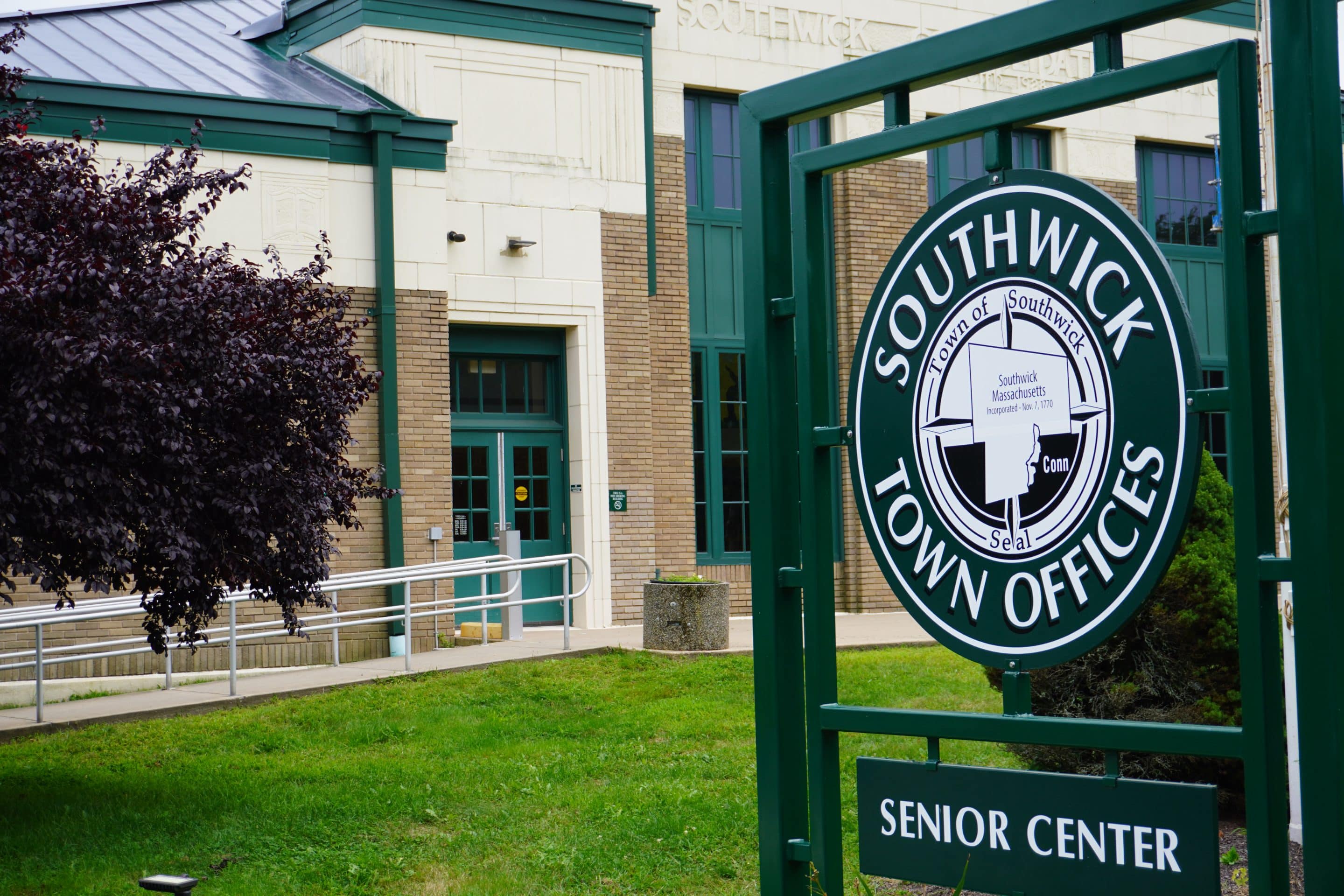SOUTHWICK — During the Conservation Commission’s meeting on Nov. 3, the commissioners continued the planning of revegetating the eroded areas of the North Pond Conservation Area, and approved supporting a bill working through the Statehouse that would fine contractors who perform work on private property without a permit.
“It’s the new proposal in a bill to hold contractors liable, just as liable as the landowners. So, what we’ve seen in the past, where a contractor comes in and a landowner thinks that they’ve pulled all the permits, [but the] permits haven’t been pulled and the contractors long gone [leaving] landowners responsible for everything,” said Conservation Commission Coordinator Sabrina Pooler about HB 3415.
If the bill makes it to Gov. Maura Healey’s desk, it will mandate “fines for contractors who perform work without a required permit and shall mandate that contractors obtain permits personally or retain copies of permits provided by a landowner for a reasonable time, to be provided to permitting authorities upon request.”
“This is a proposal to hold contractors accountable,” Pooler said, who said on Nov. 5 that on at least three occasions in the past, a landowner has been called in front of the commission to answer questions about a project within a designated wetland area that wasn’t properly permitted.
In each case, the landowner thought the contractor had pulled permits for the work.
Commissioner Andy Reardon did have a “concern” about the bill because it didn’t include making a property owner also responsible for pulling the required permits and the possibility of fining them also.
While commissioner Dennis Clark didn’t hold out hope the bill would be passed, he said, “right now, they’re not held accountable whatsoever.”
Commissioner Christopher Pratt said that typically contractors are “well aware of what they’re doing whereas the homeowner is not.”
“They don’t know the regulations,” Pratt said of most landowners, but “contractors are aware of what they should be or shouldn’t be doing in wetland areas.”
Commission chair Norm Cheever reminded the commissioners that holding contractors responsible for pulling permits was included in a list of items to include when amending the town’s wetlands bylaw, which it started work on last year.
“We’ve talked about it for a long, long time and [I] wish it could have happened a long, long time ago, Pratt said before the commission voted unanimously to send a letter to the bill’s sponsor, state Rep. Margaret Scarsdale.
During the commission meeting on Oct. 20, commissioner Kevin Solek gave the commission a list of native plants to be planted in the areas of the North Pond Conservation Area to revegetate areas of the property that are seriously eroded because of overuse by visitors.
The commission scheduled a workday on the 61-acre property but there were questions about how it would pay about $500 for native plants, white pine, red oak, and mountain laurel, needed for the project.
The workday was cancelled for several reasons, one being that the Saturday chosen was the first day of the bird hunting season at the Southwick Wildlife Management Area which abuts the conservation property.
Since the last meeting, Pooler said Jennifer Jones, the stewardship specialist for the state Division of Fisheries and Wildlife, told her that whatever projects the commission is planning should first be approved by it.
Cheever also said the commission needed to rule on a Request for Determination of Applicability because much of the work being planned is within 100 feet of North Pond.
An RDA asks the conservation commissions to decide if proposed activity is subject to the Wetlands Protection Act. If the finding is negative, the project can proceed. If the finding is positive, a Notice of Intent is required, and then an Order of Conditions, which would describe what would be needed before starting a project, like silt fencing.
Because the commission can’t file for the RDA itself, it needs another interested party.
Cheever suggested having the newly reconstituted Open Space Committee file.
Select Board member Diane Gale attended the meeting and said if the Open Space Committee couldn’t do it, she would as a member of the North Pond Task Force, that was charged with coming up with solutions to repair the property after a brawl that started in the parking lot of the property and spilled onto South Longyard Road.
The commission also discussed whether it would throw its support behind an effort by the owners of a property on Tannery Road to protect it from development either by having the town purchase a conservation restriction on it using Community Preservation Committee funds or have it protected through the Agricultural Preservation Restriction program.
The APR program enables farmers, a portion of the Tannery Road property is hayed annually, to access the financial value of the land without needing to sell it. Through federal, state, and local funds, the state Department of Agricultural Resources can pay farmland owners the difference between the “fair market value” and the “agricultural value” of their farms in exchange for a permanent deed restriction to retain the land for farming.


